Detroit's piece of gentrification.
Quote:
Detroit’s Cass Corridor makes way for new era
Louis Aguilar, The Detroit News
The last of what’s still called Cass Corridor is now being marketed as “Woodward Square” and “Cass Park Village,” signaling the final overhaul of the seedy and wildly creative neighborhood.
Renderings of the future Woodward Square show a massive arena with a glowing fire-engine red roof — the $450 million new home of the Detroit Red Wings. Tree-lined streets are packed with cafes and there’s an outdoor stage.
Presently, Woodward Square is four blocks of mainly barren land between Woodward and Cass. Many of the buildings, like the former Temple Hotel that offered rooms for $375 a month, already have been demolished.
Cass Park Village, in its present incarnation, is the square park near the front entrance of the Masonic Temple, where hundreds of street people line up daily for free meals from a soup kitchen.
This is how Cass Park Village is being hyped: “Part entrepreneurial, part punk, this neighborhood has been conceived with individuality and expression in mind,” reads the description on DistrictDetroit.com.
The website is the public face of the $650 million development plan that intends to create five thriving “new neighborhoods” north of downtown.
If it succeeds, it will obliterate the final chunk of what’s still called Cass Corridor, a name that was notorious and at the same time intriguing, dating back to the ’60s — referring to a loosely defined area of Cass from Wayne State University to the north to the 1-75 freeway to the south.
“Cass Corridor never had specific borders, but it had a very clear state of mind,” said Elias Khalil, co-author of a book about the history of the area. “It was bohemian, counter-culture that thrived in a neighborhood that sometimes was bleak and industrial, but, also rich with free expression,” he said.
It sparked art movements and fostered the music careers from everyone from the MC5 to Madonna and the White Stripes, Khalil said.
It’s just the kind of neighborhood that’s been gentrified in most U.S. cities, said John Mogk, a Wayne State University law professor who closely follows urban land issues.
“It’s the mix of cultural institutions, universities and proximity to downtown,” Mogk said. To developers, that translates to an educated, diverse audience. “The other attractive element is Cass Corridor’s deep history of a raw creativity. In this era of “creative class,” developers will see that history as way to attract the kind of demographic everyone wants.”
...
"It used to be bars and hookers. Now it's gentrification," said Susan Najar, whose husband owns a small parcel of land on Second Avenue near Alexandrine, near the high-end restaurant Selden Standard. "This isn't Cass Corridor anymore, you know what I mean?"
But that's not a bad thing, since her husband is now getting many offers for property that no one wanted for years.
Properties are routinely being sold now. Last year, three of the few remaining buildings still owned by Chinese Americans in the long-gone Chinatown area, near Cass and Peterboro, were sold. Each of the commercial buildings was sold in the range of $225,000 and $275,000. For years, no one wanted to buy them at any price, said Don Yee, a real estate broker with Max Broock Realtors, who was involved in one of the sales.
...
|
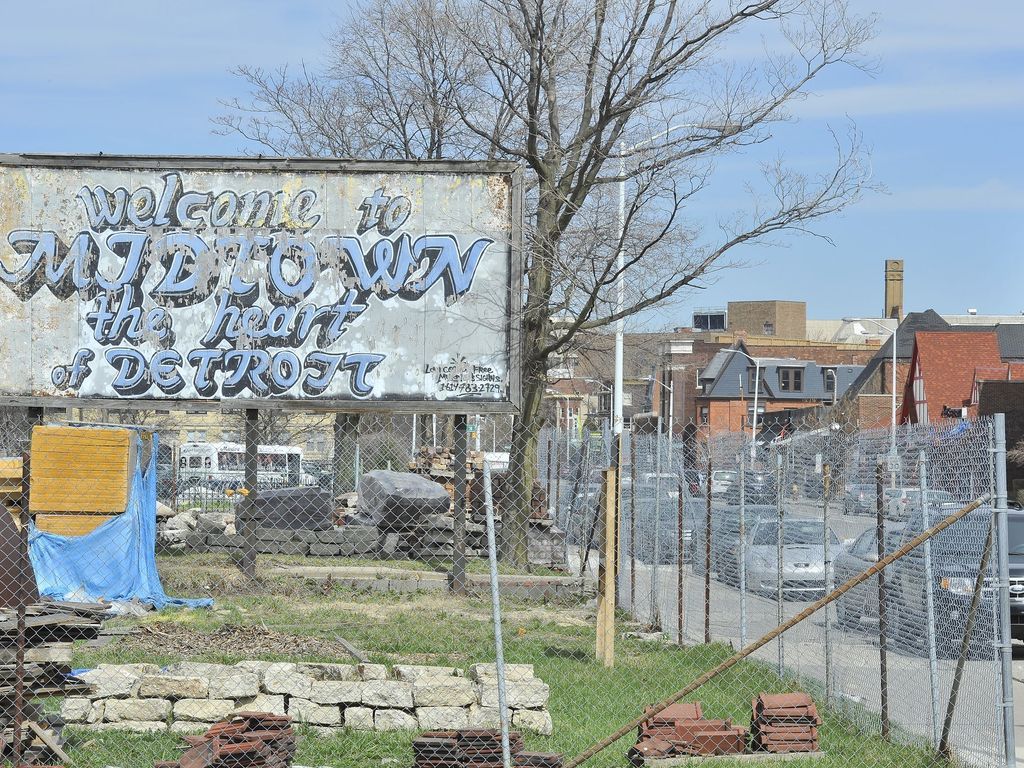
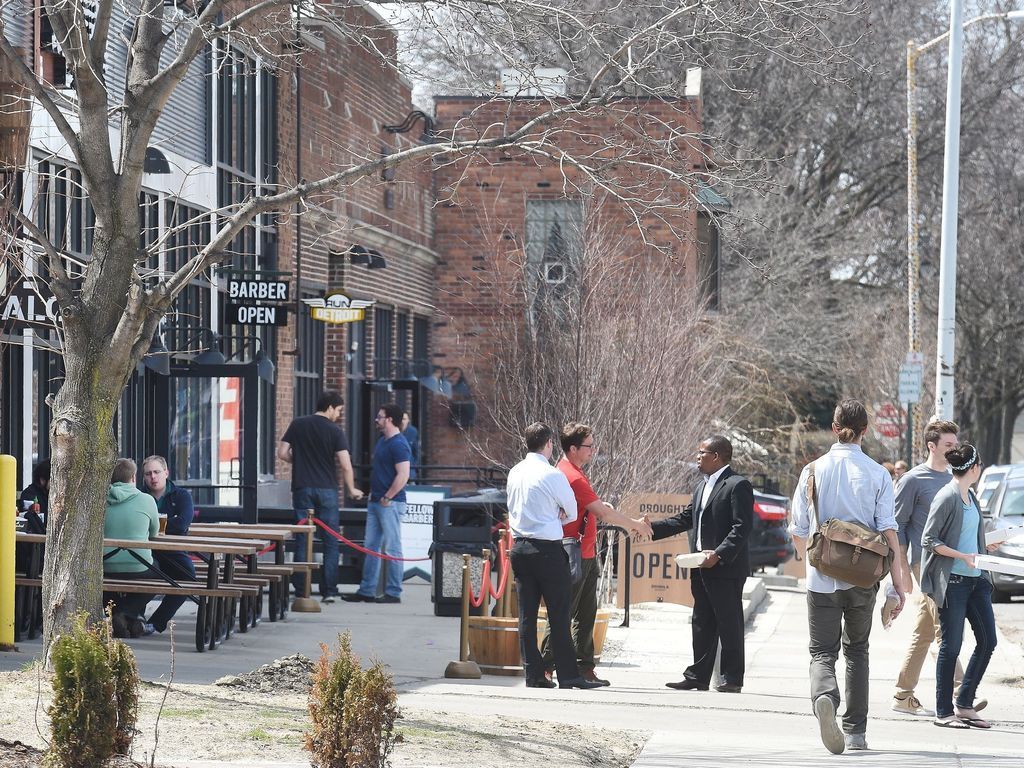
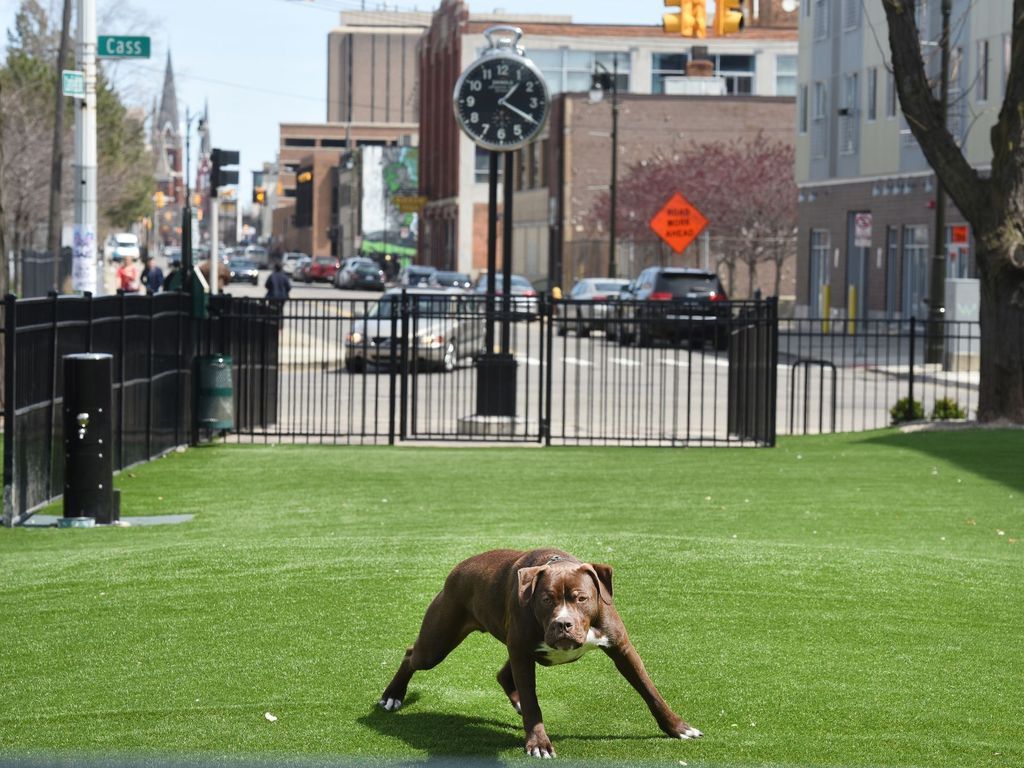

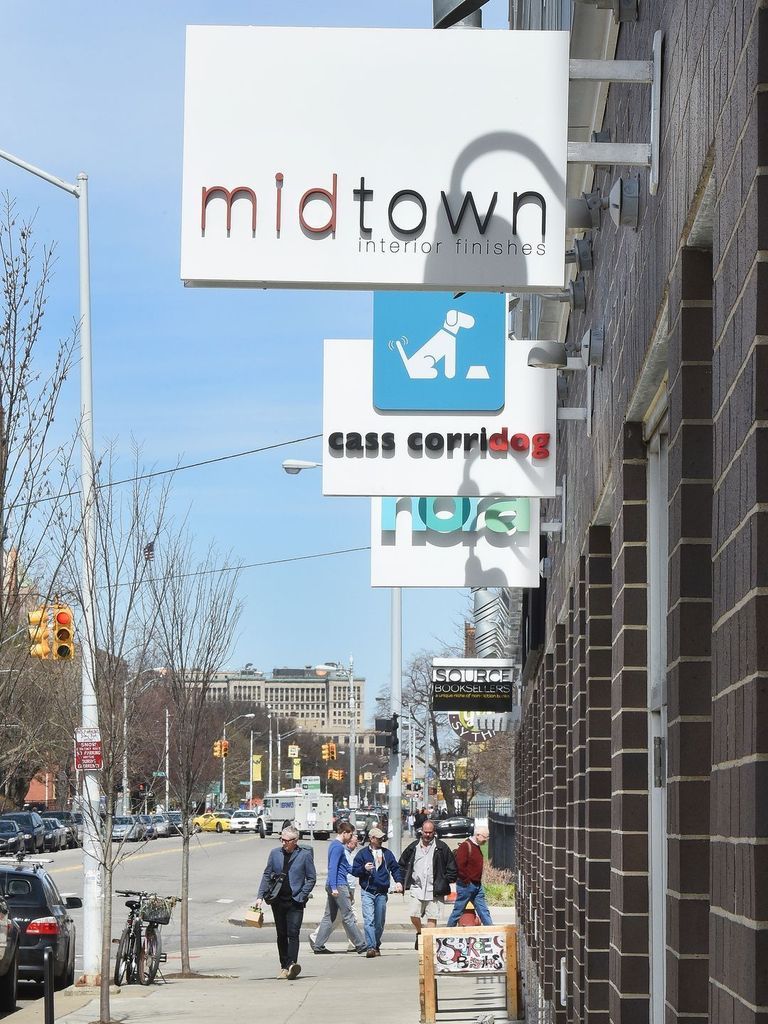
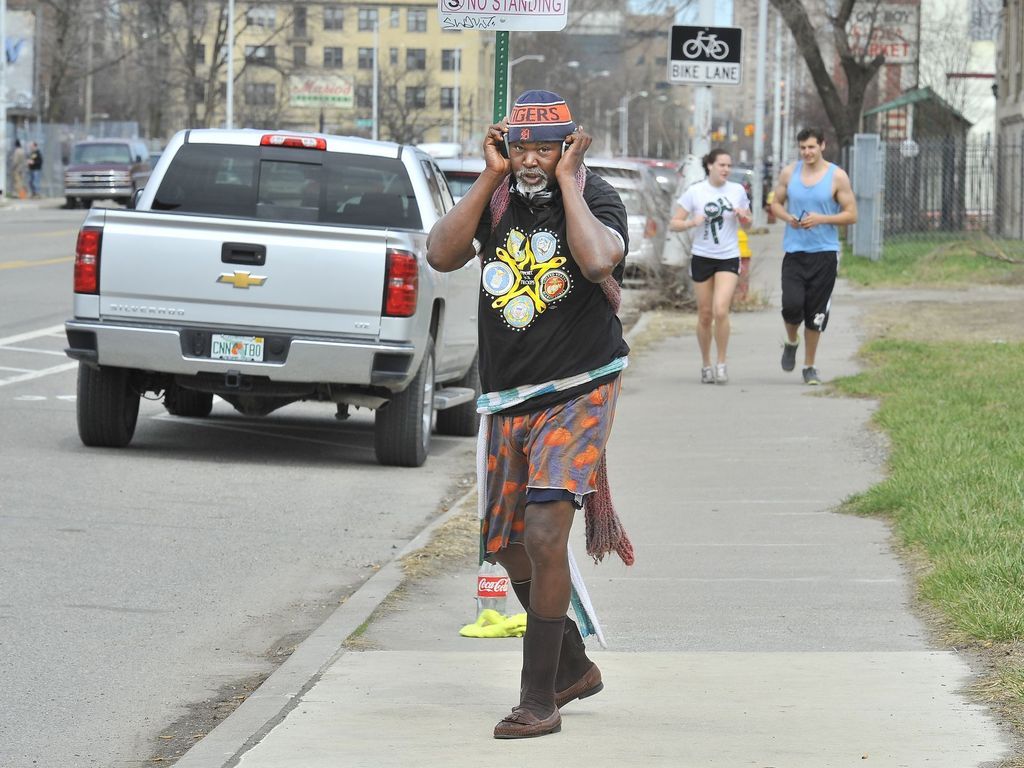
Terrance Williams, 54, who lives in the Cass Corridor, dances along Second. As he does his unique exercises, many passersby smile and give him the thumbs up. Williams has seen the changes in the Corridor, "You got to have some money to change stuff; (Mike) Ilitch has the money." Williams goes on, "It's Ilitch who is behind all this. If Ilitch, the hockey, went to Southfield, we wouldn't have nothing." As for the influx of white people that seem to be in the Corridor, Williams goes on, "White people, and the money, came to Midtown, it's a blessing."
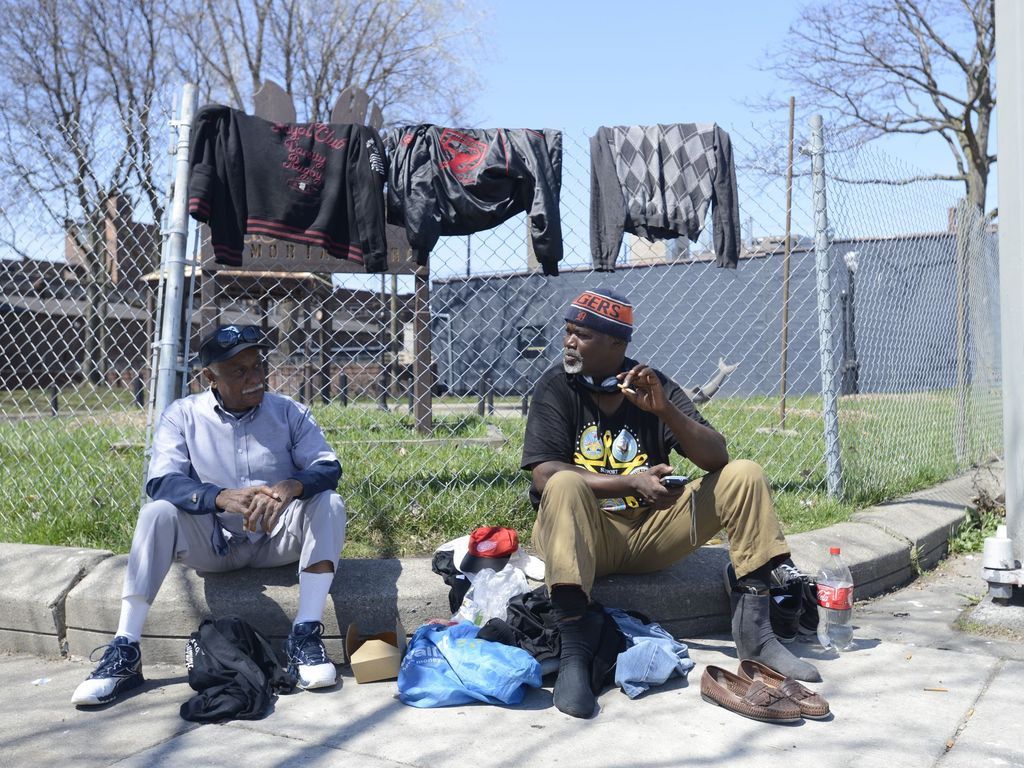
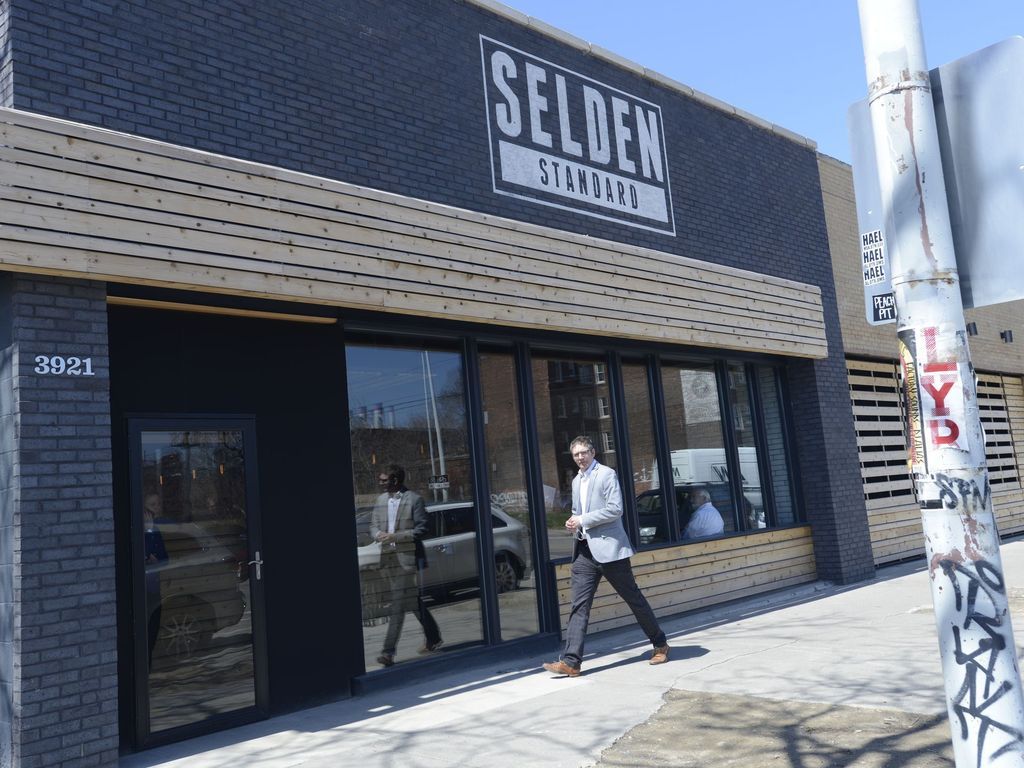
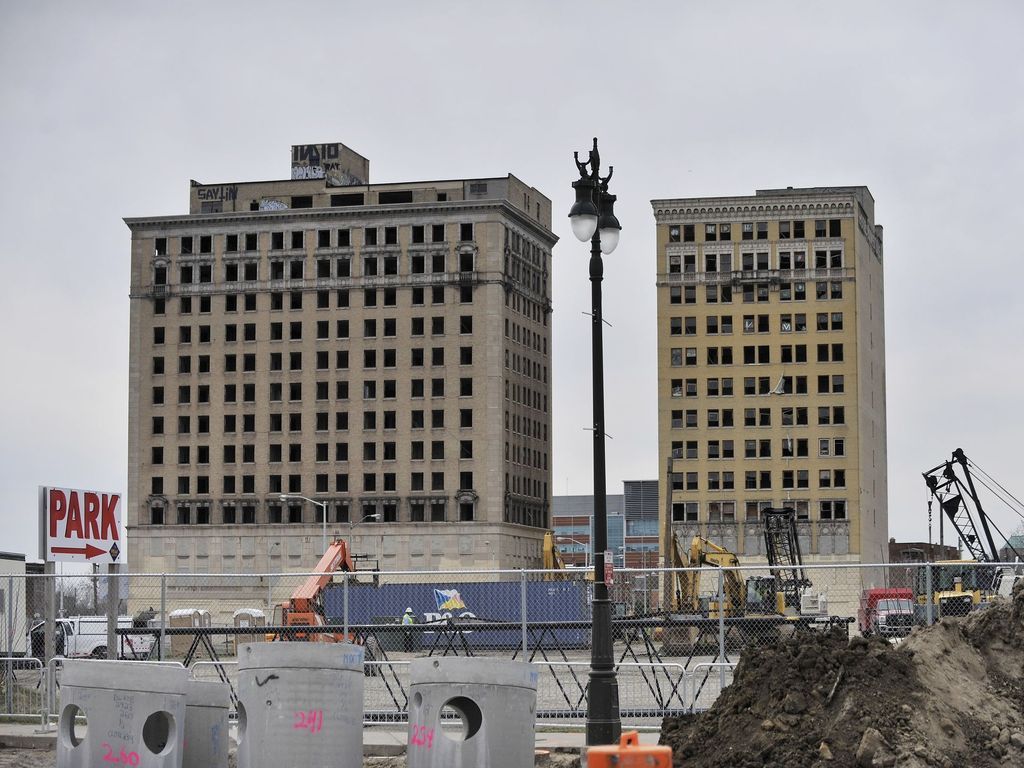

|